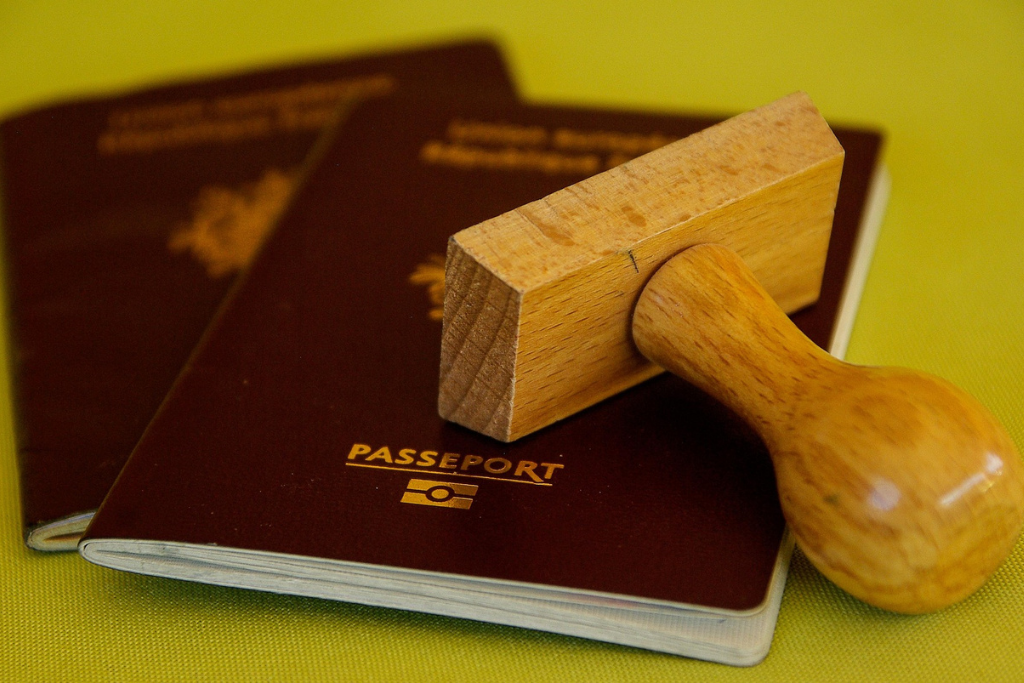The European Union (EU) Blue Card is a type of residence permit for skilled and educated individuals from outside the European Union, granted with the aim of attracting skilled workers to EU member states (except Denmark and Ireland).
This scheme was approved by the Council of the European Union in 2009 and implemented in 2012.
The Blue Card is specifically designed for individuals with specialized skills and higher education, helping European employers attract skilled workers. The Blue Card not only offers foreign professionals the opportunity to work in Europe but also provides a pathway to permanent residency and even citizenship in EU member states.
In this article, we will comprehensively examine the German Blue Card, its conditions, and its benefits.
What are the benefits of the German Blue Card
The German Blue Card offers numerous benefits to its holder, including:
Legal Residence and Work Permit: By the use of this card, you will have Legal permission to live and work in Germany with your family.
Opportunity for Permanent Residency: After 33 months of residence with the Blue Card, it is possible to apply for permanent residency (Settlement Permit – Niederlassungserlaubnis); if your German language skills are at the B1 level, this period is reduced to 21 months.
Equal Rights: Blue Card holders generally enjoy the same equal rights and legal protections as German citizens, including social security, unemployment benefits, parental leave, and child benefits.
Ability to Travel to Other European Countries: The Blue Card allows for short-term travel and stay in other EU countries. You can travel freely within the Schengen area – for up to 90 days in any 180-day period – for tourism or business purposes (not for work).
Ability to Change Jobs and Access the EU Labor Market: After a certain period (18 months), changing employers or jobs without restrictions or even migrating to other EU countries is possible. You will need to apply for a Blue Card in the new EU country, but this process is generally simplier.
Family Reunification: The Blue Card holder can be accompanied by their spouse and children under 18 years of age. Also, the spouse of a Blue Card holder is allowed to work and study in Germany without any restrictions, even if they do not have a Blue Card themselves.
Requirements for Obtaining a German Blue Card
To be eligible for a German Blue Card, applicants must meet several key criteria:
Non-EU Citizenship:
You must be a citizen of a country outside of the European Union (EU), the European Economic Area (EEA – plus Iceland, Liechtenstein, and Norway), and Switzerland.
Job Offer:
The applicant must have a formal job offer from a reputable company in Germany that is relevant to their expertise and education. The employment contract must be for at least 6 months.
- Note: Some regulated professions (such as doctors, lawyers and teachers in some cases) may require licensing.
Minimum Annual Salary:
The Blue Card is designed for high-paying jobs. The minimum annual salary must be above a certain threshold set by Germany. This amount is typically between 1.0 and 1.5 times the average gross annual salary in the country.
The minimum salary required to obtain a Blue Card is as follows:
- For regular professions: Approximately €56,800 per year (2025).
- For specialized occupations in demand (engineering, IT, medicine, and natural sciences): At least €43,750 per year.
Relevant Education:
Possession of a university degree (at least a Bachelor’s degree) that is recognized or equivalent in Germany or other EU countries is required.
- If the educational qualification is foreign, it must be verified by ANABIN (the German system for evaluating foreign qualifications).
- Note: The “ANABIN” database (maintained by the German Central Office for Foreign Education – ZAB) is the official source for checking the recognition status of foreign qualifications. You can search for your university and degree program in this database. If it is listed as “H+” and “gleichwertig” or “entspricht,” it is generally considered approved.
- Professional Experience as an Alternative: In exceptional cases, particularly for Information and Communication Technology (ICT) professionals, you may be eligible with at least three years of relevant professional experience in the past seven years, even without a university degree.
Age Requirements:
Although, officially, there is no specific age limit for obtaining a German Blue Card, individuals older than 45 years of age may encounter difficulties in obtaining a German Blue Card and work visa. This is because, to receive it, they must demonstrate the capacity to earn a higher income. Individuals under 18 years of age are also ineligible to apply for the Blue Card.
Compliance with Occupational Immigration Laws:
The job offer must comply with all German immigration laws.
In some cases, the employer may need to prove that there is no suitable European workforce available.
Health Insurance and Social Security:
The applicant must have valid health insurance in Germany and fulfill their tax and social obligations.
- Health Insurance: You must have sufficient and valid health insurance coverage in Germany. Public health insurance is common, but private health insurance may also be acceptable under certain conditions.
Other Requirements:
You must not have any criminal record or pose a threat to public order or security in Germany or the European Union. Previous visa refusals or deportations may also be considered.

What Professions Are Most in Demand for the Blue Card?
Some academic disciplines and occupational fields have a high demand for the Blue Card, including:
– Computer science (IT), software development, and data.
– Engineering: Electrical, mechanical, civil, and industrial.
– Medicine and nursing.
– Mathematics and natural sciences.
– Management positions: Economics and accounting.
What Challenges and Limitations Does the German Blue Card Have?
Despite its numerous benefits, the Blue Card also comes with some challenges and limitations:
Complexity and Bureaucracy: While the Blue Card is designed to be straightforward, the German immigration process can still be bureaucratic. Applicants should be prepared for paperwork, appointments, and potential delays.
Regional Differences: Immigration regulations and procedures can sometimes vary slightly between different German states (Bundesländer) and even between different foreign nationals’ offices within states. Checking the specific requirements and procedures of the Ausländerbehörde responsible for your intended place of residence, is crucial.
Restrictions on Changing Jobs: In the first two years, changing employers requires approval from the immigration authorities, which can limit job flexibility.
Language Requirements: The need for proficiency in the host country’s language can be a challenge for some applicants.
Intense Competition: Competition for job offers is high, with competition from European professionals and other immigrants.
Recent Legal Changes: Immigration laws are subject to change. When writing your article, it is essential to research and refer to the latest laws and guidelines.
Check the website of the Federal Office for Migration and Refugees (BAMF) for any recent updates or amendments to German residence law or Blue Card regulations.
Required Documents
A comprehensive list of all the required documents has been prepared for you:
- Valid Passport: As mentioned earlier, your passport must be valid for at least three months longer than your intended stay.
- Application Form: Completed application form for a residence permit (Antrag auf Erteilung eines Aufenthaltstitels). You can usually download this form from the website of the relevant Foreigners’ Office or the German Embassy/Consulate.
- Passport Photos: Recent biometric passport photos.
- Original University Degree Certificate (and transcripts if necessary).
- Job Offer: Original job offer letter from your German employer, clearly stating your position, salary, and job description.
- Employment Contract: Signed employment contract.
- Resume (CV): A detailed resume outlining your education and work experience.
- Proof of Health Insurance: Confirmation from a German health insurance provider.
- Proof of Address in Germany: Rental agreement or confirmation of residence in Germany.
- Declaration of Employment (Erklärung zum Beschäftigungsverhältnis): This form is usually provided by your employer and must be completed and signed by them. It provides information about the employment relationship.
- Professional Practice Permit/License (Berufsausübungserlaubnis): Required for certain professions (e.g., for doctors, engineers in some states, etc.) if applicable.
- Visa Application Fee: There is a fee for the visa and residence permit application. This amount may vary slightly, so check the current fees.
Blue Card Validity and Renewal
Initial Validity: The card is initially issued for a maximum of four years or for the duration of your employment contract plus three months, whichever is shorter.
Renewal: The Blue Card is renewable if you continue to meet the eligibility criteria (employment, salary, etc.). You must apply for renewal before your current card expires.
Changing Employers: If you change employers during the validity of your card, you may need to inform the Foreigners’ Office and obtain permission, especially in the first two years of employment. After two years of holding a Blue Card, you generally have more flexibility to change jobs, but it is always best to consult with the Ausländerbehörde.
Job Loss: If you lose your job while holding a Blue Card, you generally have a period (usually three months, ensure through the Foreigners’ Office for changes in laws and conditions) to find a new eligible job. If you find a new job, you can usually keep your Blue Card.
Regulations Regarding Family Reunification
As mentioned earlier, Blue Card holders have the right to bring their spouse and minor children (under 18 years of age) to Germany with them.
- No German Language Requirement (Initially for Spouse): Unlike some other family reunification pathways, the spouse of a Blue Card holder is usually not required to prove German language skills before entering Germany.
- Immediate Access to the Labor Market for Spouse: They are usually granted immediate and unrestricted access to the German labor market.
Required Documents for Family Members: Family members must apply for their own residence permit for reunification. They must provide documents such as:
Passport
Marriage certificate (for spouse)
Birth certificates of children
Proof of relationship
Proof of sufficient living space in Germany
Proof of health insurance
How to Find Jobs in Germany?
General International and German Job Portals:
– LinkedIn: A very strong professional network where you can find numerous job opportunities worldwide, including Germany. You can create your profile in English and German and search for jobs related to your expertise. Use filters to search for full-time jobs and positions suitable for expats.
– XING: A popular professional network in Germany and German-speaking countries. If your target is the German job market, having a profile on XING is highly essential.
– Indeed: One of the largest global job portals with a significant number of job listings in Germany.
– Monster: An international job portal with a strong section dedicated to Germany.
– StepStone: A highly popular job portal in Germany focused on specialized and managerial positions.
– Jobware: A high-quality job portal in Germany, mostly targeting professionals and managers.
– Bundesagentur für Arbeit (Federal Employment Agency): The official website of the German Federal Employment Agency, which covers a large portion of job listings in Germany
Steps to Apply for a Blue Card
After receiving a suitable job offer, prepare and translate the required documents, and schedule an embassy appointment at your country of residence. Prepare yourself for interviews (if needed) and complete your application files during this process. Keep in mind that this procedure may take some time, so patience is essential.
- After obtaining the visa, inform your employer of your planned arrival date in the destination country.
- Upon arrival in Germany, visit the Immigration Office or the Foreigners’ Registration Office (Ausländerbehörde).
- Registration at a local residence office: Register your new residential address at the Bürgeramt or Rathaus (commonly known as Anmeldung).
- Applying for an electronic residence permit (eAT): The Blue Card visa attached to your passport is generally valid only for initial entry into the country. Once in Germany, you must apply for an electronic residence permit (elektronischer Aufenthaltstitel – eAT) to serve as your official proof of residence. This is typically done at the Foreigners’ Office (Ausländerbehörde).
- Opening a bank account at a local bank.
- Obtaining a tax identification number (Steueridentifikationsnummer) from the Tax Office (Finanzamt).
- Start working and integrate into the community by getting familiar with the new culture.
The EU Blue Card is a strategic initiative designed to attract top international professionals, creating valuable opportunities for career advancement and personal growth within Europe. With clear eligibility criteria and competitive benefits, it not only opens doors for specialists but also strengthens the European workforce and stimulates economic progress.
Germany’s Blue Card, in particular, provides foreign professionals with a secure, straightforward path into the European labor market, offering diverse job prospects and a high quality of life. For Europe, this program bridges crucial skill gaps and fuels continued innovation and competitiveness.
More than a work permit, the Blue Card offers professionals a chance to immerse themselves in Europe’s rich, multicultural society; opening new horizons and shaping brighter futures.
Are you a talented professional dreaming of working in Germany, but unsure if you’re eligible?
Try the Germany Visa Quiz now and find out for free whether the Blue Card is the best option for you!







2 Responses
Good
Very good